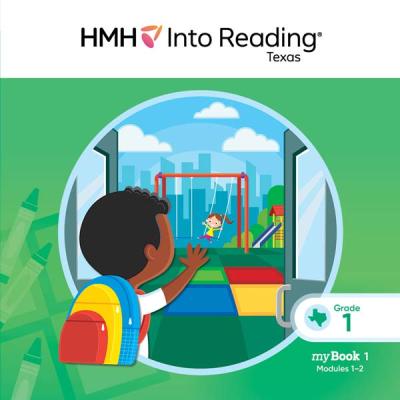Evaluation for 5.F.1a
Materials include teacher guidance to support students in determining the meaning of unfamiliar words with illustrations, texts, and guidance in the use of context according to grade-level TEKS.
HMH Into Reading Texas materials include teacher guidance to support students in determining the meaning of unfamiliar words with illustrations, texts, and guidance in the use of context according to grade-level TEKS. For example, in the Module 2 Teacher's Guide, Week 1, Lesson 3, the materials support students in determining the meaning of unfamiliar words through a vocabulary routine that incorporates teacher modeling, oral practice, and contextual support. Teachers use the "I Do, We Do, You Do" framework to introduce Power Words from the text "Dan Had a Plan." Each word is explicitly taught using student-friendly definitions, example sentences, and multimodal strategies, such as acting it out, making connections, or using props. For example, the word mess is defined as "not neat," and students act it out by making a mess with classroom objects. The word market is explained as "a place where people can buy things," with students connecting it to familiar items like fruit or juice. For the verb sell, teachers model the concept using a prop by exchanging a coin for a piece of paper. Other words, such as help, neighbors, and set, are similarly reinforced through real-life connections or physical demonstrations. The grade 1 materials include consistent and intentional support for pre-teaching unfamiliar vocabulary and references in text, particularly for figurative and academic language. The supports are in every lesson through the "Introduce Oral Language" section, which guides teachers in introducing key vocabulary before students encounter it in context. For example, in the Module 6 Teacher's Guide, Week 1, Lesson 2, the routine for teaching oral Power Words from the Big Book You're a Grand Old Flag states, "Use the steps I do, we do, and you do with the information in the chart below to teach the oral Power Words from the Big Book, 'You're a Grand Old Flag.'" The Power Words introduced in this lesson are forever, peace, emblem, true, and flag. Each word has a student-friendly definition and a strategy to help students connect the word to their own experiences. For example, the lesson defines forever as "If something lasts forever, it lasts a long time and does not end," and encourages teachers to "Compare forever to a familiar unit of time. If a school day lasted forever, it would never end!" For peace, the definition is "Peace is a time when there is no fighting or war," and the guide suggests, "Connect the concept to familiar experiences. When the sisters started reading, there was peace in the living room." The word emblem is defined as "An emblem is something that is used to mean something else," and the teacher is prompted to "Sketch a familiar emblem, such as your school's or a familiar sports team. This emblem stands for blank." For true, the lesson explains, "When you act in a way that is true, you do what you think is right," and adds, "Give examples that relate to children's activities. If you read a book that interests you instead of a book that everyone else wants you to read, you are acting true to yourself." The word brag is introduced with the definition, "When you brag, you say something about yourself that makes you seem too great," and the guide encourages teachers to "Talk boastfully about something you do: I am so good at basketball, I could beat a team all by myself!"



